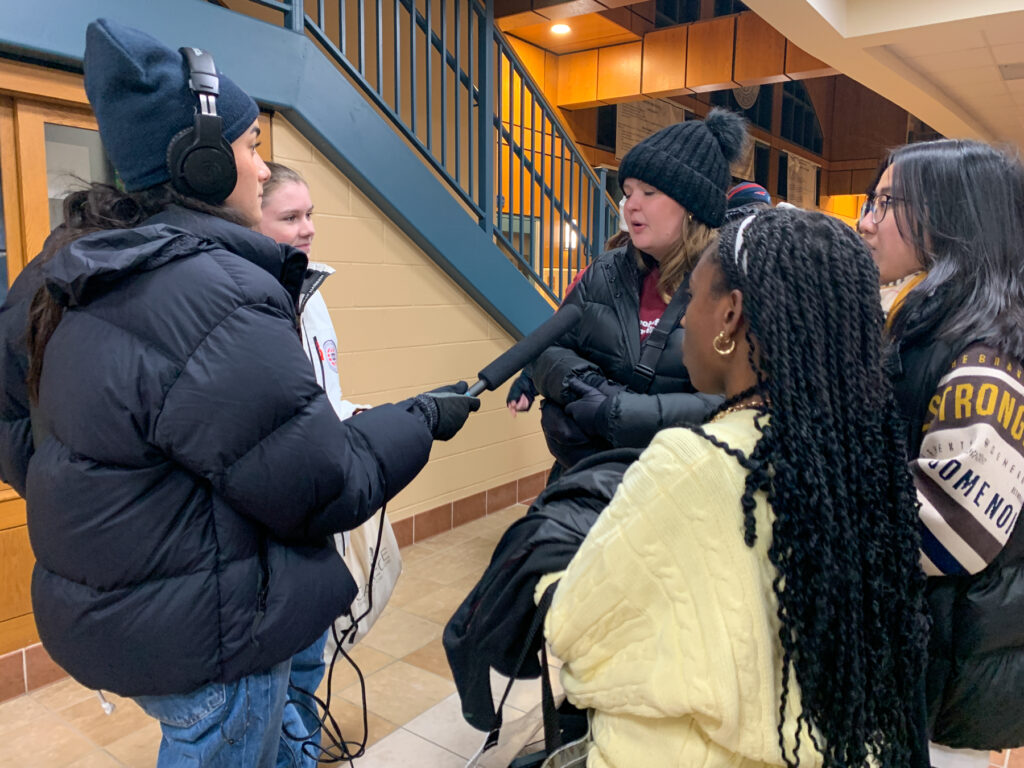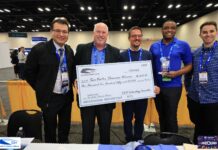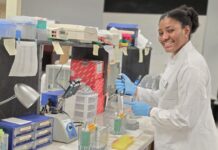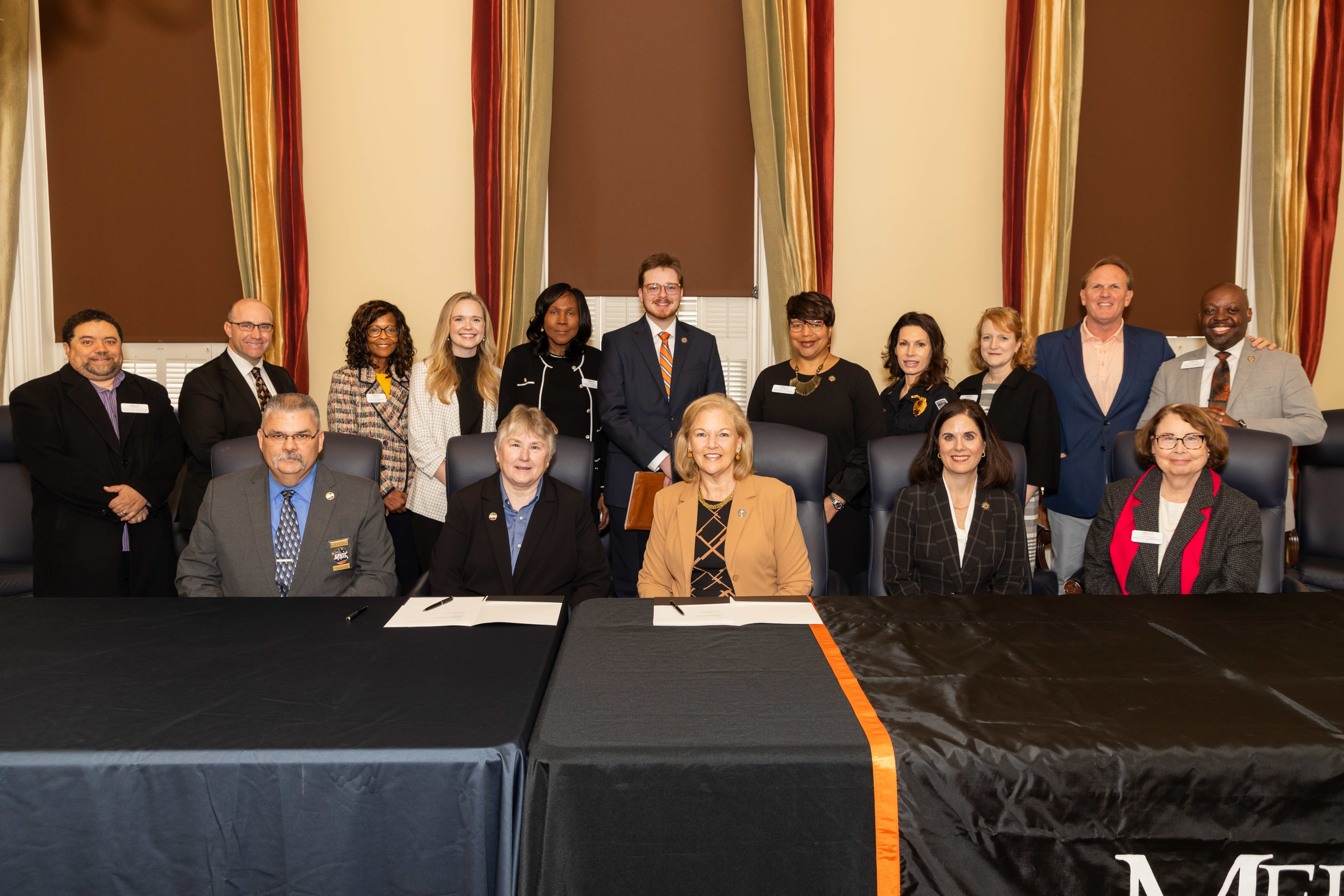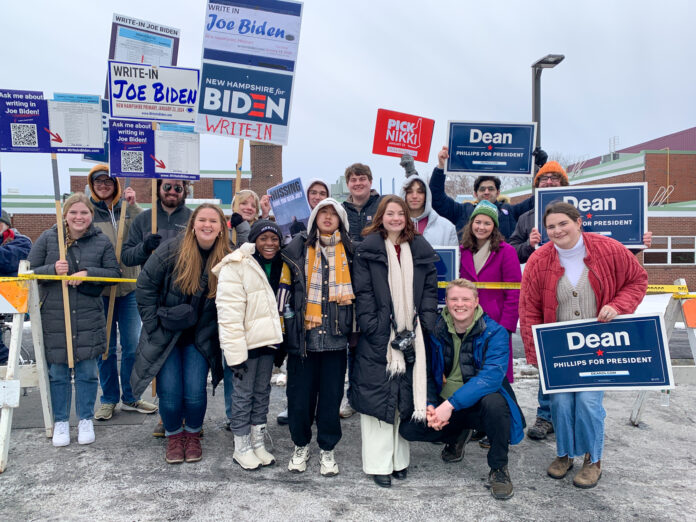
Mercer University students are getting a firsthand look at the democratic process as they travel to presidential primaries across the country.
A group recently returned from the Jan. 23 New Hampshire primary. Other groups will attend the Feb. 3 Democratic primary and Feb. 24 Republican primary in South Carolina, followed by the Michigan primary on Feb. 27.
“The presidential primaries are a unique form of elections in America. The media has a huge influence on how voters perceive what’s going on because they don’t happen everywhere. They only happen one at a time in different places,” said Dr. Chris Grant, professor and chair of political science.
“I’ve been taking students to observe what happens in these events for 24 years now, so they get a sense of what are they seeing, what the media report and how the candidates make appeals — all these sorts of things.”
Dr. Grant started taking students to the primaries in 2000 when he worked at Presbyterian College. He continued the trips when he came to Mercer in 2005.
Thirty-three students are in this year’s traveling seminar, which consists of three courses: primaries, rhetoric and the media, taught by Dr. Grant; political journalism, taught by Tanya Ott, assistant professor of practice and journalist-in-residence; and political rhetoric, taught by Dr. Kevin Cummings, professor of communication studies.
In New Hampshire, students attended campaign events for Republican candidates former President Donald Trump and Nikki Haley and Democratic candidate Dean Phillips. Political science and communication studies students participated in phone banking and other forms of campaigning leading up to the Jan. 23 primary, while journalism students documented the events involved in the presidential selection process.
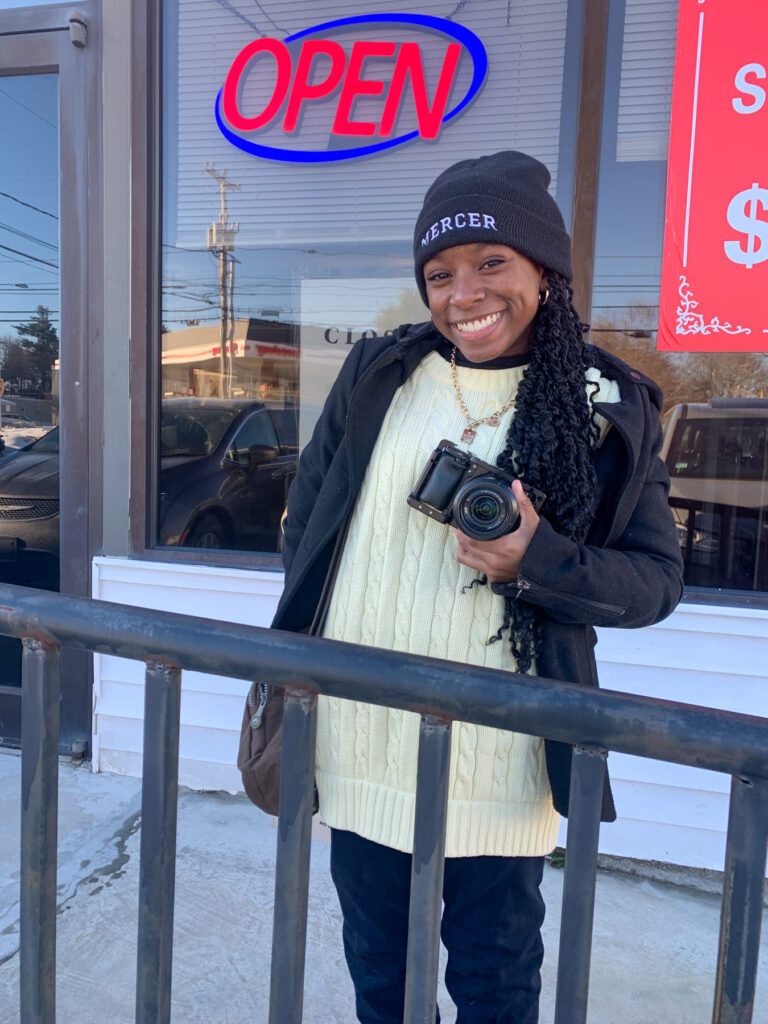
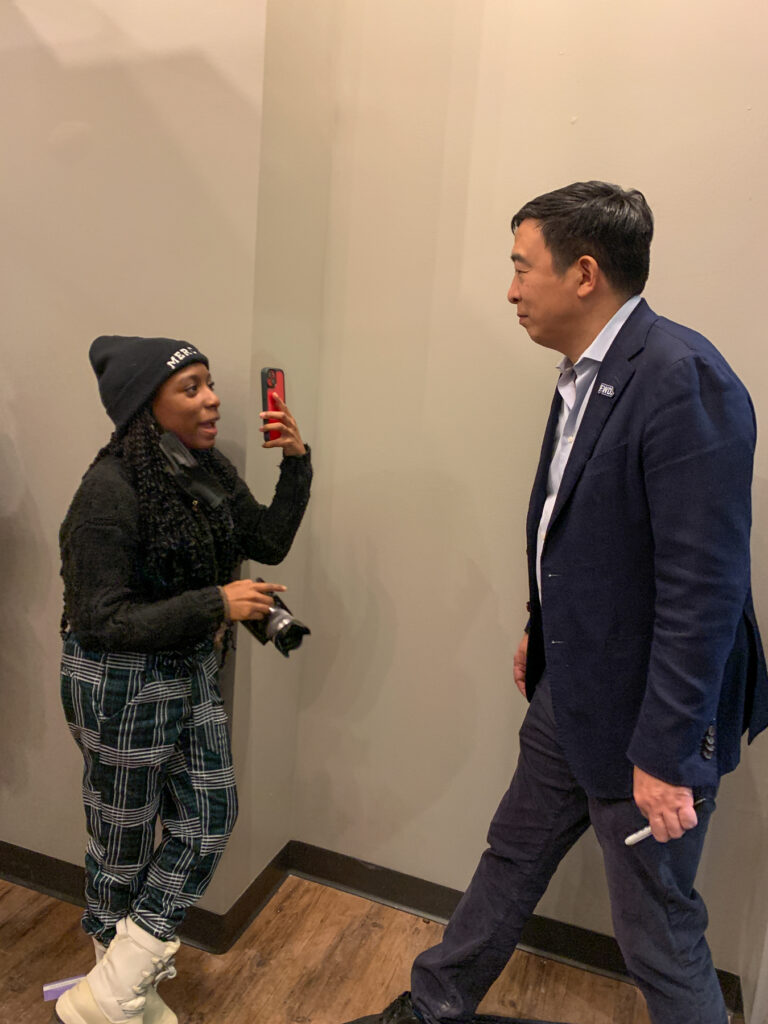
The differences between the candidates’ events were striking, said Anna Hale, a junior majoring in political science.
Trump’s rally, which was held in a big arena, almost felt like a concert, and Haley’s rallies were smaller and more intimate. Neither candidate had one-on-one interactions with supporters, she said. Meanwhile, at Phillips’s events, the candidate took questions from the audience and took pictures with supporters.
“The candidates really handled everything differently, and that was really interesting,” she said.
Harris Wallace, a freshman majoring in philosophy, politics and economics, volunteered with a grassroots campaign to write in incumbent President Joe Biden on the Democratic ballot.
Biden wasn’t listed on the New Hampshire ballot following his party’s decision to make South Carolina the first primary to award delegates for the Democratic National Convention. Biden won the election following the write-in effort.
Wallace said his biggest takeaway from the trip was “how much of a difference it makes when you organize at the grassroots level, and you get really involved yourself.”
“And it’s not just a difference in the result,” he said. “It’s a difference in how much you know about the process and how much you understand about what’s going on. It’s a difference in how much you really care about the issues.”
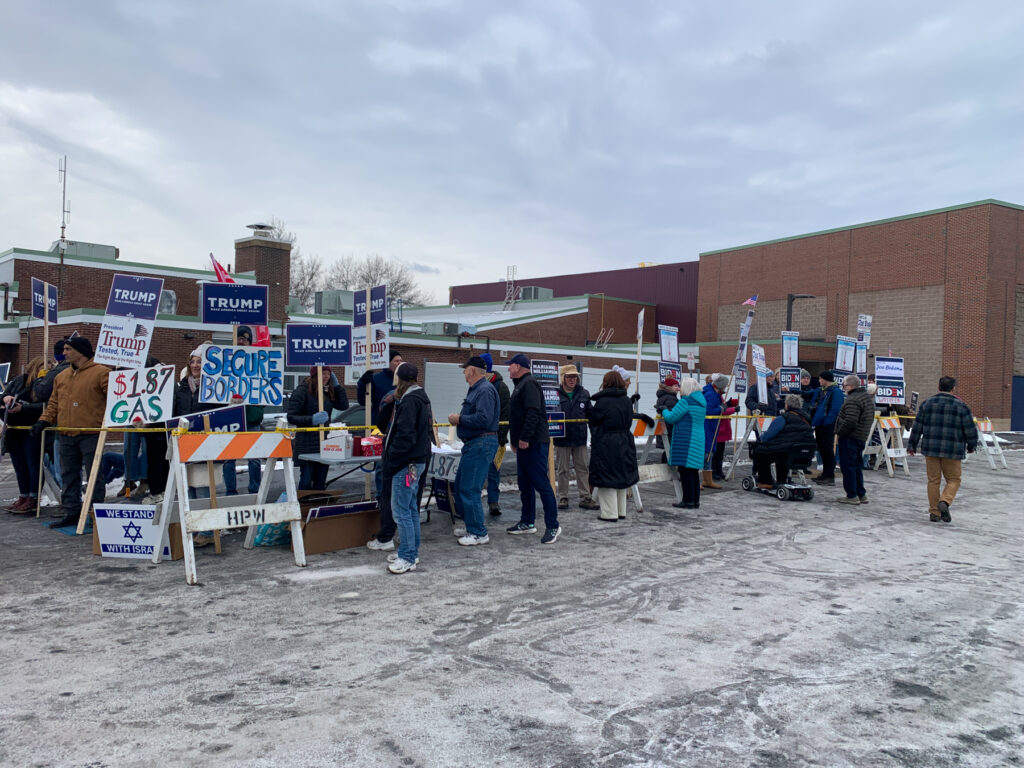
Mercer trains its student journalists to be impartial observers, so journalism students on the trip didn’t volunteer with the various campaigns. Instead, they interviewed voters and documented the campaigns and election day in photos and videos.
“I interviewed a lot of people who were holding signs outside of polling centers,” said Henry Keating, a senior journalism major. “I interviewed some people who were holding Biden signs and some people who were holding Trump signs right next to each other.”
His reporting found that while “even on a base level there are some hostilities, there is also a lot of common ground between neighbors in these political discussions that you don’t always see in the big rhetorical spiels that happen in the media and on social media,” he said.
Time in the field helps students become active and engaged with what they’re learning in the classroom, said Dr. Cummings, who teaches students in his class the importance of civility and healthy debate in politics.
“Our students get to listen to the stories that other people tell and the evidence and examples that they use,” he said. “They do not have to agree with them, but they should be willing to have conversations about the questions that they’re raising and the kind of America that they envision.”
These trips are a great way to merge practice and theory, Dr. Grant said.
“As the years go by, I know these memorable events aid in students’ understanding of the process of nominating presidential candidates and the ease of engaging in presidential campaigns,” he said. “One day I hope to see one of my students running for president.”
